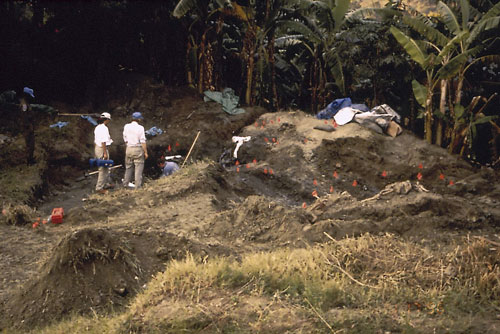A generation has grown up without knowing about the genocide in Rwanda. The killing fields there are now recorded in history books, and college students sometimes stare blankly when told that in the space of three months in 1994, almost a million people in this small east African country were slaughtered by their fellow citizens in a frenzy of politically-motivated mass killing.
The fact that the world failed to stop this mass atrocity weighs heavily on the many of us who were active in human rights during that decade.
As the International Criminal Tribunal for Rwanda (ICTR) wraps up its dockets in Arusha, Tanzania on December 14 and hands over cases to other processes, we reflect on landmark “firsts” accomplished by the tribunal: the first international prosecution for the crime of genocide, and the first conviction for rape and sexual violence as forms of genocide.
For our team of forensic scientists at Physicians for Human Rights (PHR), providing physical evidence to the Rwanda tribunal also meant firsts: opening the largest single grave ever exhumed to date for forensic purposes; deploying experts from more than a dozen countries to conduct the investigation; and experiencing the pathos of watching exhumed bodies receive blessings in a church before laying them out for forensic evaluation on benches built for prayer.
There were hundreds of potential sites and graves to investigate in Rwanda, but the PHR team, under the leadership of senior forensic advisor Dr. William Haglund, was directed to a mass grave near the Roman Catholic Church and Home St. Jean in the parish of Kibuye, above Lake Kivu in the northwest of the country.
The killings here were investigated in connection with the indictment of the parish’s former prefect, Clemont Kayishema, a trained medical doctor whom the tribunal would eventually sentence to life in prison for the crime of genocide. Read more here







